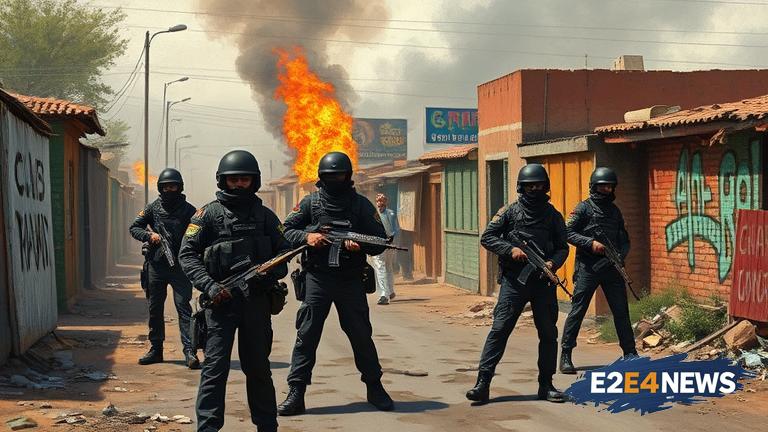The call for an urgent anti-gang crackdown in South Africa has gained momentum in recent weeks, as community leaders, residents, and local organizations express their deep concern over the escalating violence. Gang-related crimes have been on the rise, with many innocent lives lost and families torn apart. The situation has become so dire that many are now seeking immediate intervention from law enforcement agencies and the government. According to reports, the Western Cape province has been particularly affected, with areas such as Cape Town and its surrounding townships bearing the brunt of the violence. Residents have spoken out about the fear and trauma they experience daily, with many feeling helpless and trapped in their own homes. The lack of effective policing and inadequate resources have been cited as major contributing factors to the problem. Community leaders have emphasized the need for a multi-faceted approach, involving not only law enforcement but also social and economic initiatives to address the root causes of gang violence. They argue that poverty, unemployment, and a lack of opportunities are driving young people into gangs, and that these issues must be addressed through sustainable solutions. The South African government has been criticized for its slow response to the crisis, with many calling for more decisive action. In response, authorities have announced plans to increase policing presence in affected areas and implement new strategies to combat gang violence. However, many remain skeptical, citing past failed promises and initiatives. The issue has also sparked debate about the role of social media in perpetuating gang culture and violence. Some have argued that social media platforms are being used to glorify gang life and recruit new members, while others see them as a valuable tool for raising awareness and promoting anti-gang initiatives. As the situation continues to deteriorate, there is a growing sense of urgency and desperation among those affected. Many are now calling for a national state of emergency to be declared, in order to mobilize resources and attention to the crisis. The international community has also been urged to take notice, with some advocating for foreign assistance and expertise to help tackle the problem. Despite the challenges, there are also stories of hope and resilience emerging from the affected communities. Local organizations and initiatives are working tirelessly to provide support and alternatives to young people, and to promote peace and reconciliation. These efforts, however, are often underfunded and understaffed, and require greater support and resources to be effective. As the people of South Africa continue to demand action, it remains to be seen whether the government and law enforcement agencies will be able to respond effectively to the crisis. The consequences of inaction will be dire, with many fearing that the situation will continue to spiral out of control. In conclusion, the call for an urgent anti-gang crackdown in South Africa is a complex and multifaceted issue, requiring a comprehensive and sustained response from all stakeholders. It is imperative that the government, law enforcement agencies, and local communities work together to address the root causes of gang violence and provide support to those affected.
